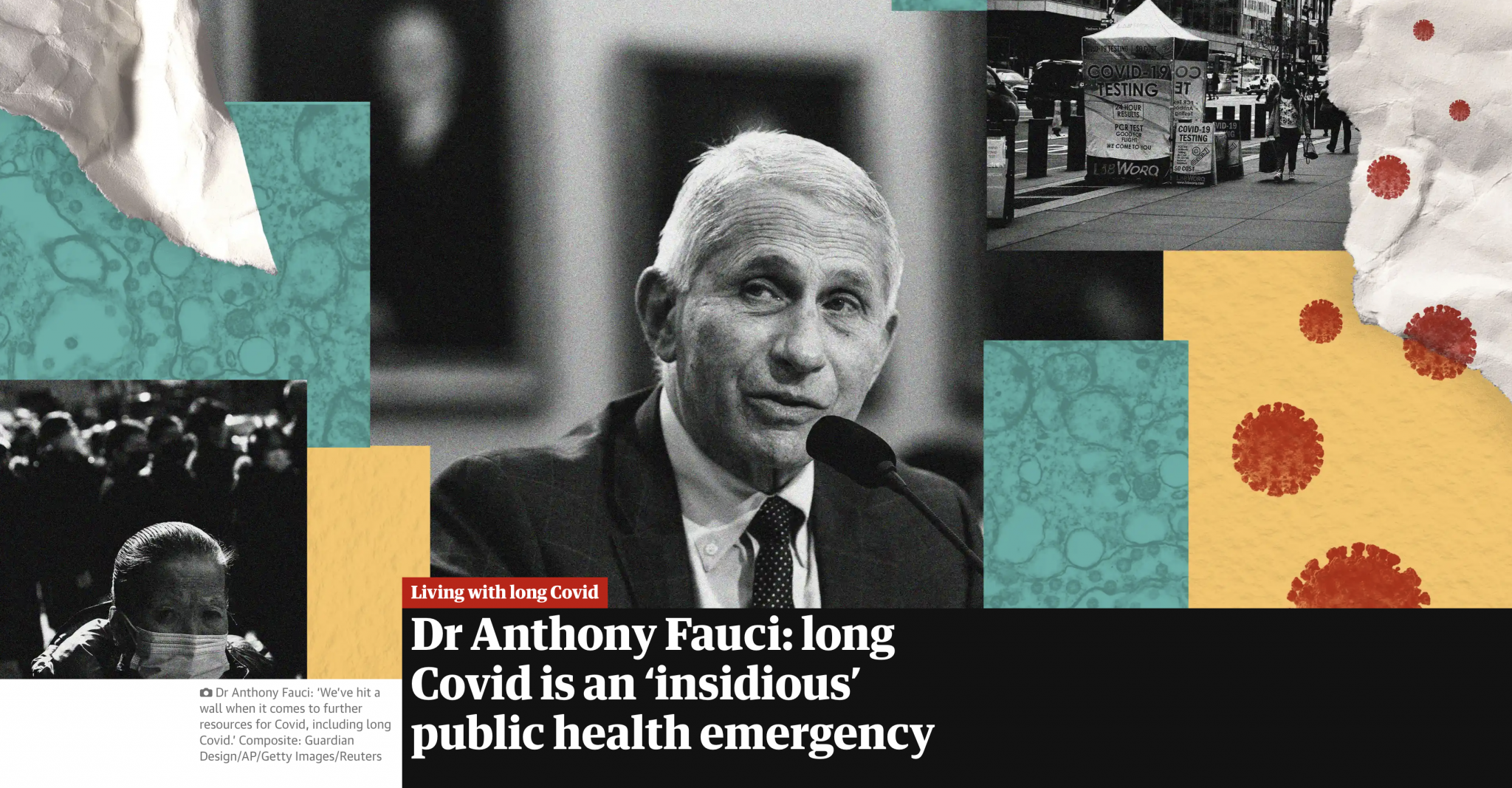Exclusive: America’s top disease expert speaks to the Guardian about the dangers of long Covid and urges US Congress to avoid complacency
by David Smith in Washington
Dr Anthony Fauci, America’s top infectious disease expert, has warned against prematurely declaring victory over the pandemic, not only due to short-term needs but because long Covid represents an “insidious” public health emergency for millions of people.
In an interview with the Guardian, Fauci urged US Congress to avoid complacency and resume funding to combat the virus as well as long Covid, a chronic and prolonged illness that continues to elude scientists and healthcare providers.
“It’s a very insidious beneath-the-radar-screen public health emergency,” Fauci said via Zoom. “It isn’t that you have people who are hospitalized or dying, but their function is being considerably impaired. For reasons that are obvious, that doesn’t attract as much attention as a death rate.”
The cold fact that Covid-19 still kills 400 people a day in the US catches public attention more acutely than estimates of the millions suffering from long Covid, Fauci added. “People say, well, what does that mean? It’s not very concrete. And yet for the individual patient, it could be debilitating.”
The World Health Organization believes that between 10% and 20% of Covid-19 survivors have been left with lasting symptoms including breathlessness, fatigue and cognitive dysfunction that can persist long after the acute infection has resolved.
Between 7.5 million and 23 million Americans are estimated to have developed long Covid. More than 1 million people could be out of the workforce at any given time, resulting in a loss of more than $50bn in income.
There is no test for long Covid – its precise causes remain mysterious and little is known about how it interacts with other medical and physical conditions. This poses particular challenges for scientists, public health providers and politicians seeking to engage an American public eager to move on.
“One of the unfortunate, challenging and frustrating parts about it is that there are so many elements of it that don’t fit into a known or recognizable pathogenic process,” Fauci said. If a person is severely fatigued and unable to work, for example, there is no laboratory test, X-ray, CT scan or MRI that points to something and says: “There’s inflammation here and that’s the reason for the fatigue.”
Fauci continued: “We don’t know what the mechanisms of brain fog are. How come someone who is very sharp intellectually and very energetic all of a sudden can’t concentrate for more than half an hour on anything? And how come people who are polished athletes no longer have any exercise tolerance?”
‘There are more unanswered questions than there are answered questions’ – Dr Anthony Fauci
‘The non-specificity and the vagueness of this is its own worst enemy’- Dr Anthony Fauci
Fauci said: “The non-specificity and the vagueness of this is its own worst enemy because you can’t pin down what’s wrong or it takes a while to document how long it lasts. If one of the conditions for disability is that you have to have a condition last for a year, what is the parameter that you’re going to use to indicate that it’s lasted a year? If there’s no lab test, if it’s only subjective feeling – ‘well, I’ve been incapacitatingly fatigued for a year’ – how do you prove that?”



